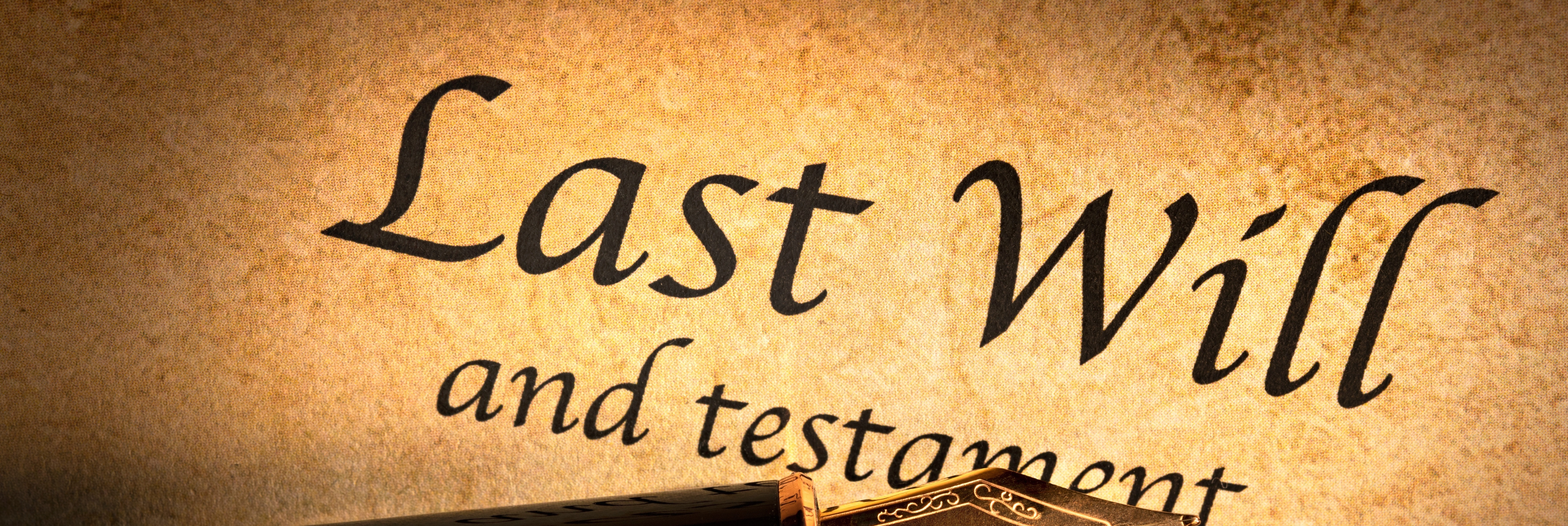Last Will & Testament
We Can Help You!

What is a Last Will and Testament?
A Last Will and Testament is a legal document that allows you to control how your estate will be distributed after you pass away. A Last Will also enables you to appoint a guardian for your minor children as well as provide instructions and set aside funds for the care of any pets you may have.
Who should use a Last Will?
A Last Will and Testament should be used by anyone over the age of 18 to help avoid potential disputes or confusion regarding your estate. A Last Will is especially important for parents with minor children as it will allow you to appoint a guardian and have a say in how your children will be raised.
Why is a Last Will Important?
A Last Will allows you to give instructions on who will get your property after your death, appoint the person who will administer your estate, and appoint a guardian for any minor children you may have. If you die without a valid Will, your property will instead be distributed by a court-appointed administrator according to a pre-determined formula (defined in state law).
Without a Will, you would not be able to give your property to a non-relative or to exclude relatives. If you have no Will and there are no relatives at the time of your death, your property will go to the state.
If you die without a valid Will, a court-appointed administrator distributes your estate according to a pre-determined formula (defined in state law). For example, the California probate code states that an intestate person's property goes first to their surviving spouse and any children (in varying degrees, dependent on the situation). If you leave no instructions and have no surviving family members, the state may collect your property.
Living Will & Medical Power of Attorney
We Can Help You!

What is a Living Will?
A Living Will is a document in which you can specify the medical treatments you wish to receive if you become incapacitated and can’t communicate.
As such, this document helps health care workers understand when to proceed with certain treatments when you’re:
• In a coma
• Terminally ill or injured
• In the late stages of dementia
• Near the end of life
The terms of your directive are binding once you sign the document.
What is a Medical Power of Attorney? A Medical Power of Attorney is a document that appoints someone to make medical decisions on your behalf. This person becomes known as your health care agent or proxy. If you’re incapacitated, your health care agent generally has the authority to:
• Consent or refuse consent to treatments (per your Living Will)
• Receive/review your medical and hospital records
• Sign any medical releases or health care documents.
A Medical Power of Attorney is also known as a Durable Power of Attorney for Health Care. For decision-making powers over legal, financial, and other personal areas of your life, use a Power of Attorney.
Why should I create a Living Will?
Creating a Living Will gives you control when you can’t speak for yourself and saves your family from making tough choices on your behalf.
Plus, when implementing a Medical Power of Attorney, you can discuss your wishes with someone you trust before you’re incapacitated. This way, you can trust they’ll make decisions in your best interest.
Power of Attorney
We Can Help You!

What is a Power of Attorney (POA)?
• A Power of Attorney (POA) is a document that allows one person to appoint another person to act on their behalf concerning finance, real estate, business, and more.
• Within a Power of Attorney, if you are the one granting authority to a representative, you are called the principal. The personal representative you appoint is called the attorney-in-fact (also known as the agent or mandatory, depending on your state).
TYPES OF POWER OF ATTORNEYS: There are two types of Power of Attorneys: Ordinary or Durable.
• An Ordinary Power of Attorney is only valid as long as the principal is capable of acting for him or herself and will end automatically when the principal becomes mentally incapacitated or dies. An Ordinary Power of Attorney is valid until you are incapacitated.
Who should have a Power of Attorney?
Although many different situations can prompt a person to create a Power of Attorney document, POAs are used to allow someone to act on your behalf when you are not available or capable to act for yourself. You might want to consider making a POA if:
• You travel out of the country often.
• You work in a hazardous work environment.
• You are diagnosed with a severe illness.
• You have a business or property that needs maintenance when you’re unavailable.
• You have children who would need to be provided for if you were to become incapacitated.
• You want a specific person to be responsible for your affairs.
• You want a specific person to uphold your rules about how you run your business, property, or life.


WHY CHOOSE US?
We have offices both in Philadelphia and in New York City. Our Philadelphia office is conveniently located at 1515 Market Street, Philadelphia, PA 19102. We are right next to City Hall. Our New York City Office is located at: 1180 6th Ave, Suite 815, New York, NY 10036.
DID YOU KNOW that our law firm has MANY years of experience in helping people just like you? DID YOU KNOW that our firm has one of the best client satisfaction ratings in Pennsylvania?
Our office handles divorce cases on a daily basis and we would be delighted to help you with this frustrating situation. Don’t feel like you’re alone! Don’t just file for divorce without seeking legal advice! We are here to help! Call us now to see what we can do for you. DID YOU KNOW THAT YOUR CONSULTATION WILL BE FREE? Call 267-277-2641

